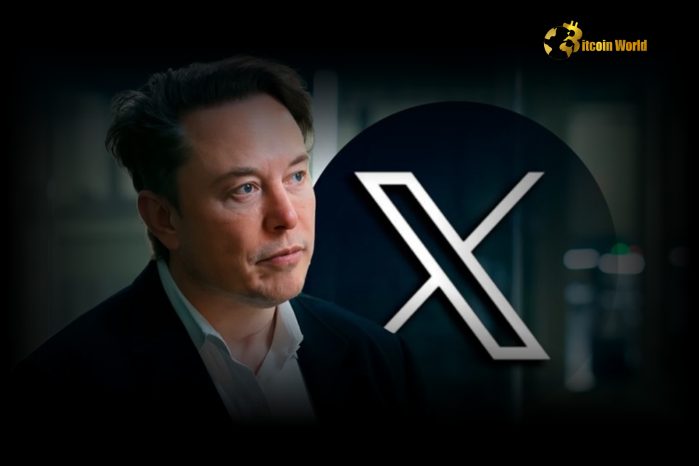Elon Musk Moves X’s Legal Disputes to Northern Texas: What It Means for the Social Media Platform
X, formerly known as Twitter, will soon handle its legal disputes in the U.S. District Court for the Northern District of Texas. The shift, announced as part of a larger update to X’s terms of service and privacy policy, takes effect on November 15. The move coincides with Elon Musk’s recent decision to relocate X’s headquarters from San Francisco, California, to Bastrop, Texas—although Bastrop falls within Texas’ Western District, the legal jurisdiction will be Northern Texas.
The decision has sparked discussion among legal and tech experts who point out the unusual nature of this choice, as most major tech companies opt for the Northern District of California. The Northern District of Texas, with ten of its eleven active judges appointed by Republican presidents, has become a destination for conservative activists challenging Democratic policies, positioning it as a conservative-leaning district.
Why Move X’s Legal Disputes to Northern Texas?
While it’s common for companies to specify the jurisdiction for legal disputes in their terms of service, Musk’s choice of the Northern District of Texas has raised questions. G.S. Hans, a law professor at Cornell, called the decision “weird” given the district’s lack of experience with tech-related cases. The Northern District of California, centered in Silicon Valley, has a long-standing history of handling tech industry disputes, boasting extensive experience with the unique challenges of social media, data privacy, and intellectual property cases.
Implications of the Texas Jurisdiction for X
Choosing the Northern District of Texas may offer strategic benefits for Musk and X, particularly given the district’s conservative leanings. Here’s what the choice of Texas as a legal venue could mean for X:
- Potential Favorable Outcomes: The Northern District of Texas is known for its conservative-leaning judges, who may take a more favorable stance on cases brought by companies with more libertarian or free-speech-driven agendas.
- Lower Volume of Tech Cases: The district lacks the established volume of tech cases seen in Northern California. This could result in less precedent for tech-specific rulings, potentially giving X more room to shape the legal interpretations of emerging issues.
- A Signal of Broader Changes in Tech Regulation: Musk’s move may reflect a trend toward decentralizing the tech industry’s concentration in California and placing regulatory and legal oversight in areas with diverse political landscapes.
What Legal Experts Are Saying About the Move
The decision has left legal experts curious about Musk’s strategic goals. Some believe Musk chose Texas to leverage the jurisdiction’s conservative stance, particularly given his push for “free speech” values on the platform. Others suggest it might be a cost-cutting measure, as Texas offers a more favorable tax environment than California and might be a more economically efficient base for legal operations.
Hans, the Cornell law professor, pointed out that the Northern District of Texas lacks the volume or precedent of tech-focused cases found in Northern California. This may signal that Musk is willing to pursue more uncharted legal territory, setting a tone for other tech companies that may seek venues more aligned with their political or operational values.
Relocation of X’s Headquarters to Texas: A Strategic Move?
In addition to shifting legal disputes to Texas, Musk recently moved X’s headquarters from San Francisco to Bastrop, Texas, near Austin. The city has become a hotspot for tech companies looking for favorable tax conditions, a lower cost of living, and a more relaxed regulatory environment. With tech giants like Oracle and Tesla establishing bases in Austin, Texas is emerging as an alternative to Silicon Valley, which is known for its high costs and stringent regulatory framework.
However, while the headquarters is in the Western District, Musk’s choice of the Northern District for legal matters may reflect a carefully considered strategy to find a conservative-leaning venue for potential legal battles, particularly those that may center on issues like free speech, content moderation, and privacy—core issues for X under Musk’s leadership.
Potential Impact on Future Tech Lawsuits
The shift could have implications beyond X, potentially inspiring other tech companies to reconsider where they handle legal disputes. If the Northern District of Texas proves favorable, other companies might follow suit, setting up legal jurisdictions in areas outside California to find courts more aligned with their corporate philosophies or business models. This could challenge the dominance of the Northern District of California in tech law and spread tech regulation across a more diverse set of jurisdictions.
For X, this move might allow the company to defend itself against lawsuits in a venue that may have a more flexible or favorable stance toward the complexities of social media regulations, privacy issues, and free speech rights. Musk’s decision may also invite scrutiny over how tech companies can use jurisdiction selection as a tool for favorable legal outcomes.
Conclusion
Elon Musk’s decision to handle X’s legal disputes in the Northern District of Texas marks a significant shift, indicating both a strategic and possibly ideological decision to engage with a jurisdiction known for conservative-leaning judges. This unusual choice may set a precedent for other tech companies, challenging Silicon Valley’s dominance in tech regulation and potentially influencing future rulings on critical issues like content moderation, privacy, and free speech. As this policy takes effect on November 15, the broader impact on tech industry litigation remains to be seen.
For more on the strategic shifts in tech and legal practices, check out our article on latest developments in tech regulation, where we discuss how companies are navigating regulatory landscapes across the U.S.
Disclaimer: The information provided is not trading advice, Bitcoinworld.co.in holds no liability for any investments made based on the information provided on this page. We strongly recommend independent research and/or consultation with a qualified professional before making any investment decisions.

